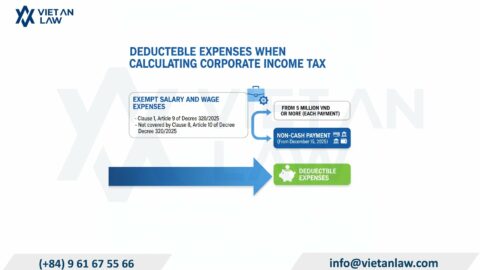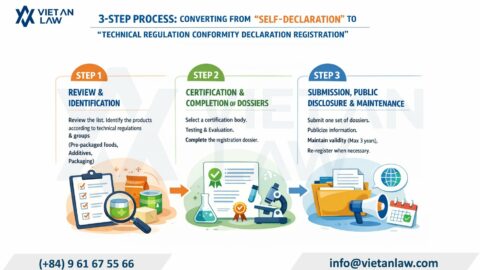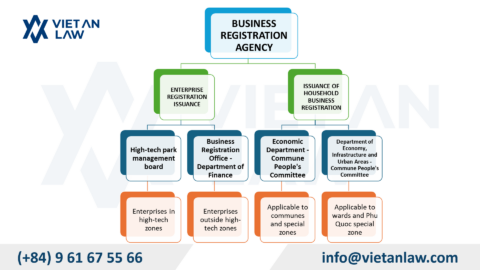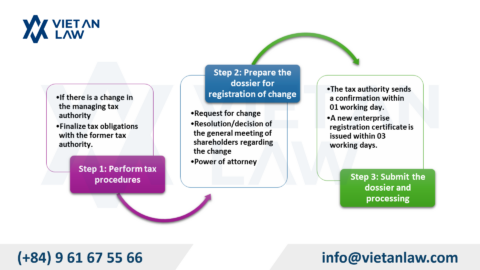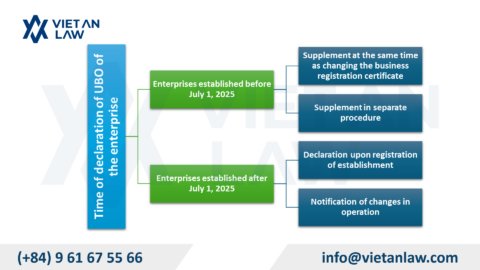In recent years, cashless payment has become increasingly popular. According to updated data from the State Bank of Vietnam, as of the end of Q1 2024, cashless payment activities continue to achieve positive results compared to the same period last year. The clearing and financial transaction switching system increased by 39.06% in quantity and 20.64% in value. Cashless payment transactions increased by 56.57% in quantity and 31.35% in value; via Internet channels increased by 48.81% in quantity and 25.73% in value; via mobile phone channels increased by 58.70% in quantity and 33.12% in value. Recently, the Government has issued Decree 52/2024/ND-CP regulating cashless payment. The following analysis by Viet An Law will highlight the key points in these new regulations on cashless payment in Vietnam 2024.
Table of contents
On May 15, 2024, the Government issued Decree 52/2024/ND-CP guiding the regulations on cashless payment.
Decree 52/2024/ND-CP regulates cashless payment activities, including:
This Decree comes into effect from July 1, 2024, and replaces Decree 101/2012/ND-CP on cashless payment, which was amended and supplemented by Decree 80/2016/ND-CP and Decree 16/2019/ND-CP.
The Decree is structured into Chapters, Articles, Clauses, and Points, comprising 07 Chapters and 38 Articles. In this Decree, there are several notable new points that Viet An Law will analyze below.
This is new content on e-money, a concept not previously mentioned in Decree 101/2012/ND-CP.
The new definition of e-money differs from the current understanding of e-money (such as cryptocurrencies). The differences between e-money and cryptocurrencies are as follows:
Therefore, cryptocurrencies are not guaranteed to be convertible into fiat in Vietnam. No organization is responsible for the risks to one or more parties involved in transactions related to cryptocurrencies.
As a result, cryptocurrencies are not yet recognized as a legal means of payment in Vietnam. It is necessary to supplement regulations to clarify the nature of e-money to ensure consistency and exclude cryptocurrencies and tools used as payment methods that are not subject to regulatory oversight. This provides a legal basis for the State Bank and related ministries to effectively perform their regulatory roles. This also supports competent authorities in preventing and combating legal violations in the field of e-money (according to the Project on completing the legal framework to manage and handle virtual assets, e-money, and cryptocurrencies, approved by the Prime Minister under Decision 1255/QD-TTg).
Decree 52/2024/ND-CP has supplemented and clarified issues regarding international payment as follows:
The regulations on international payment in Decree 52/2024/ND-CP aim to enhance the regulatory role of state management agencies in international payment activities and to promote cross-border payment service cooperation models in the context of technological development, innovation, and increasing support for e-commerce payments.
Decree 52/2024/ND-CP has provided detailed regulations on opening and using payment accounts as follows:
While Decree 101/2012/ND-CP only regulated the cases of opening and closing payment accounts, Article 14 of Decree 52/2024/ND-CP has provided detailed guidelines on the dossiers and procedures for opening and closing payment accounts at the State Bank of Vietnam for credit institutions, foreign bank branches, and the State Treasury. Specifically:
While Article 9 of Decree 101/2012/ND-CP only regulated the opening and use of payment accounts between credit institutions, Article 15 of Decree 52/2024/ND-CP has supplemented cases of opening and using payment accounts between credit institutions and foreign bank branches.
This new regulation allows transactions to open accounts between foreign bank branches. However, it should be noted that payment accounts opened between credit institutions and foreign bank branches are only for payment purposes and cannot be used for lending, overdrafts, or other purposes.
While Decree 101/2012/ND-CP only regulated that cooperative banks could provide certain payment services after obtaining approval from the State Bank, Clause 2, Article 17 of Decree 52/2024/ND-CP stipulates that cooperative banks can provide certain payment services once these are specified in their establishment and operation licenses issued by the State Bank.
This regulation ensures compliance with the Law on Credit Institutions and sets high requirements for cooperative banks when providing these services.
From Articles 18 to 20, Decree 52/2024/ND-CP has supplemented regulations on payment services not through client payment accounts, including:
This addition aligns with the provisions of the Law on Credit Institutions 2024 and the Law on Investment 2020. It also aims to guide the conditions and procedures for payment service provision activities for enterprises providing public utility services.
Decree 52/2024/ND-CP has amended and supplemented several regulations regarding the provision of intermediary payment services. Specifically:
The new points in this regulation can be compared as follows:
| Decree 101/2012/ND-CP | Decree 52/2024/ND-CP | |
| License Requirement | Having an establishment license or a business registration certificate issued by a competent state agency | Supplemented:
– Not in the process of division, separation, merger, consolidation, conversion, dissolution, or bankruptcy; – In the case of providing financial switching services, electronic clearing services, the organization must ensure not to engage in other business sectors apart from intermediary payment service provision activities |
| Minimum Charter Capital
|
Minimum charter capital of 50 billion VND | – 50 billion VND for e-wallet services, collection and payment support services, and electronic payment gateway services;
– 300 billion VND for financial switching services, international financial switching services, and electronic clearing services |
| Experience of Legal Representative, (General) Director | At least 3 years of direct work experience in one of the fields of business administration, economics, finance, banking, or law | Increased to 5 years of experience |
The new regulations on the provision of intermediary payment services aim to meet practical needs and facilitate service providers, enhancing the effectiveness of state management in intermediary payment service activities.
It can be seen that the Government’s issuance of Decree 52/2024/ND-CP on May 15, 2024, regulating cashless payment, ensures transparency, rigor, and legality, addresses practical issues, meets the requirements of digital transformation, and promotes cashless payment in the economy. At the same time, it is synchronized and consistent with the effective date of the Law on Credit Institutions 2024, which was passed by the National Assembly (effective from July 1, 2024). The new regulations on cashless payment in Vietnam 2024 are not only designed to address and resolve existing challenges but also to strongly promote a modern, efficient payment ecosystem, laying a solid foundation for the nation’s digital economic development.
The above is an analysis by Viet An Law regarding Decree 52/2024/ND-CP on cashless payment. If clients have any questions or need legal consultation services, please contact Viet An Law for the best support!
